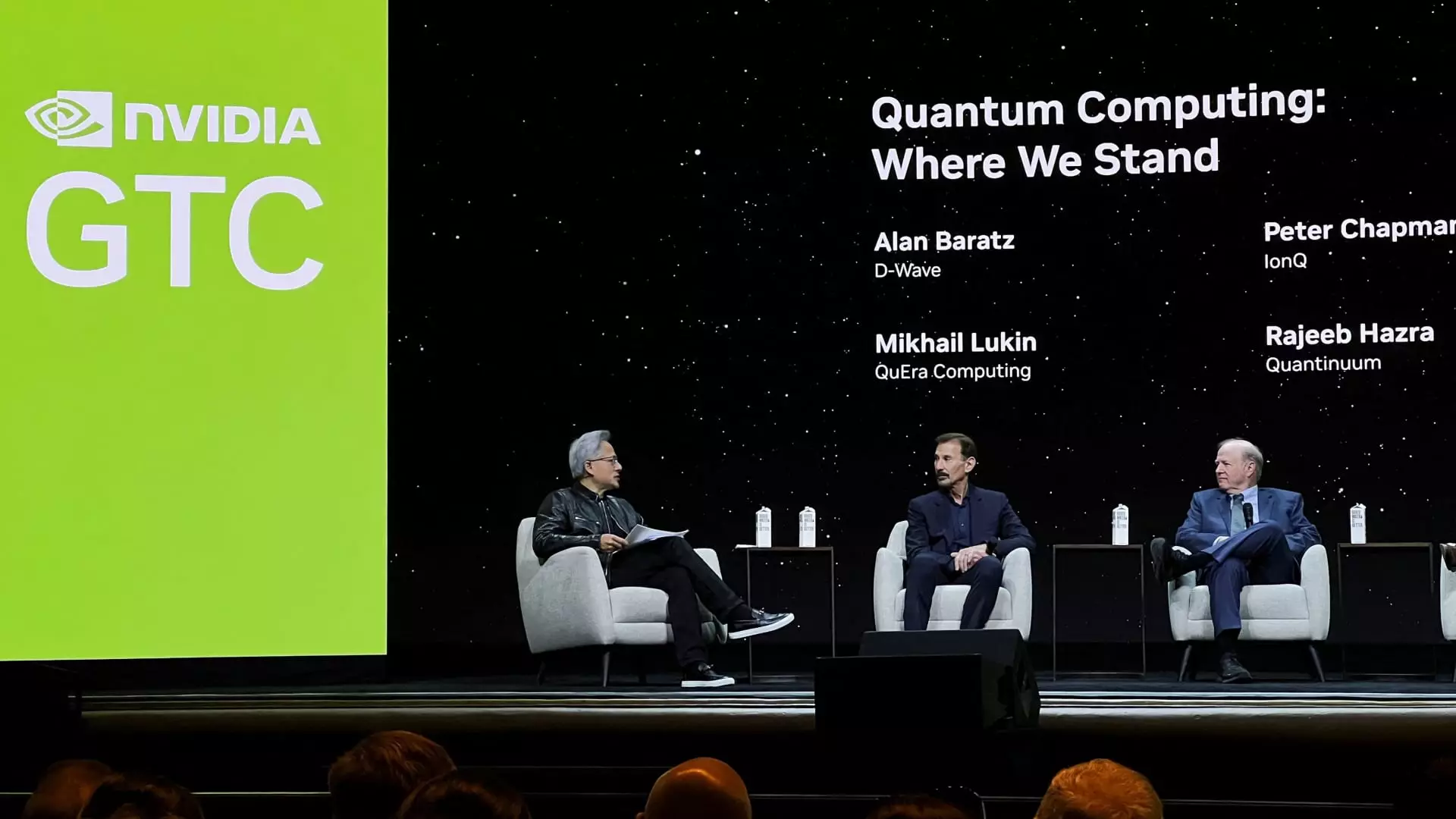As the world becomes increasingly enamored with technological marvels, quantum computing stands at the precipice of profound change. Yet, the enigmatic nature of this field is mired in a paradox. Jensen Huang, the CEO of Nvidia, recently attempted to assuage the anxieties of investors and enthusiasts alike regarding the long road to usable quantum computers. His proclamations at Nvidia’s inaugural “Quantum Day” seem to have only exacerbated uncertainty, leaving us to question whether such optimism hinders rather than helps the industry.
Past Perspectives: The 15-Year Fallacy
Huang’s initial statement from January asserting that meaningful quantum computing would still be 15 years away sent shockwaves throughout the market, triggering stocks to plummet. With a grim expectation of a 20-year timeline being deemed more plausible, investors recoiled, demonstrating how deeply intertwined expectations are with stock performance. Huang’s recent assertions aim at recontextualizing this timeline, yet the damage may have been done. His efforts to walk back this forecast leave many feeling that the stability they sought was merely a mirage, one that fades the moment it is approached.
Market Reactions: An Industry Under Siege
The fallout from Huang’s fluctuating viewpoints has been palpable. Stocks in the quantum sector tumbled following his attempts to clarify his previous comments. D-Wave, one of the distinguished players in the sector, saw its stock fall by 18% after what was supposed to be a reassurance rally. Rigetti Computing and IonQ didn’t fare much better, each encountering substantial losses of over 9%. This phenomenon raises a salient question: Are investors losing faith in quantum computing as a viable frontier? Huang’s mixed messages painfully highlight a central conflict within the industry — the market’s high hopes juxtaposed against its reluctance to abandon skepticism.
Huang’s Misguided Messaging
During “Quantum Day,” Huang addressed a fundamental issue regarding quantum computing and its branding. His assertion that labeling quantum systems as mere “computers” sets unattainable expectations is both intuitive and disheartening. The implication that the sector’s identity is flawed speaks volumes about its market positioning. The disappointment here is compounded by the reality that true innovations tend to be heralded as informative breakthroughs rather than cautious endeavors. Huang’s comments, rather than laying a foundation for confidence, seem to steer potential investors toward uncertainty and confusion.
The Role of Nvidia: A Double-Edged Sword
Nvidia’s role in this dynamic cannot be ignored. While the company gains traction through its GPUs, which serve as a powerful simulator for quantum research, the firm’s estranged relationship with its identity as a quantum player may create friction. While Huang discussed collaborations with institutions like Harvard and MIT to fuel research, these partnerships may not root profound investor confidence into the industry’s foundation. The reliance on Nvidia’s prowess while attempting to navigate a complicated relationship between classical and quantum computing reflects a nuanced tension that is likely to frustrate those eager for decisive advancements.
Future Outlook: A Long Road Ahead
Huang’s optimistic statements about the incredible potential of quantum computing contrasts starkly with market realities. Indeed, he envisions a day when quantum advancements will deliver extraordinary impacts. However, investors are not buying this narrative, as evidenced by the decline in the Quantum Defiance ETF. In both ideology and execution, the chasm between vision and reality is perilously wide. Huang’s endeavor to instill hope could potentially devolve into an exercise in futility if the investment climate remains plagued with doubt and volatility.
Concluding Thoughts: A Call for Clear Vision
The uncomfortable truths emerging from Nvidia’s Quantum Day event raise critical questions about the understanding and communication surrounding quantum computing. Huang’s mixed messaging, conflicting timelines, and the industry’s current turbulence present an arduous climb ahead. To salvage the fragile sentiment surrounding this nascent technology, a clearer and more cohesive narrative is imperative. The gravity of quantum computing may yet unlock unfathomable frontiers, but for now, the path remains riddled with obstacles begging for resolution and clarity.

